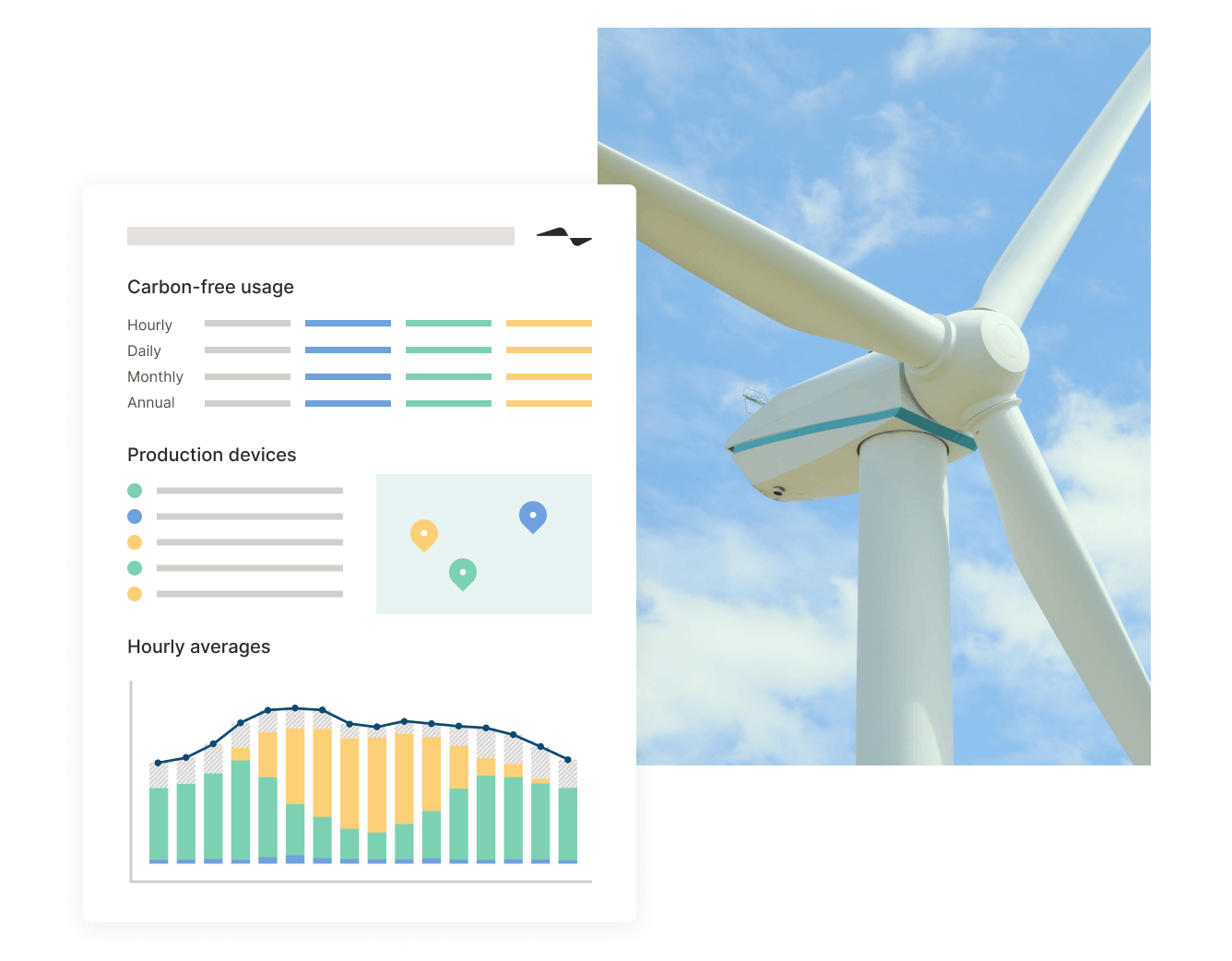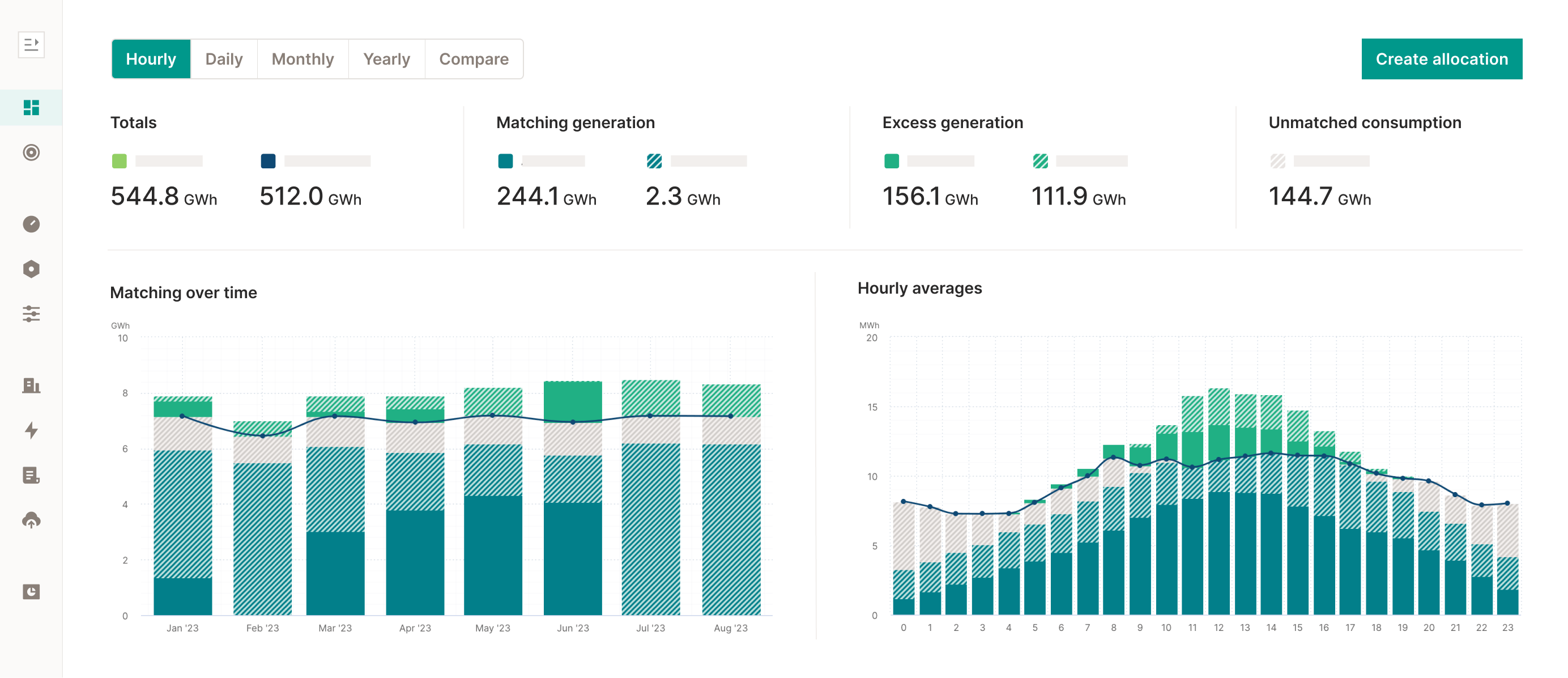News — 2 October 2023
Granular Energy raises €7.5m to improve transparency in the green energy industry
Consumers globally spent $24bn[1] on green electricity in 2022 and yet are rarely informed where this energy comes from. Start-up Granular Energy has raised €7.5m, in a round led by Norrsken VC, to improve transparency in green energy procurement and to help direct consumer spending towards delivering clean energy where and when it is most needed.

London, 2nd October 2023
The demand for clean energy, and the certificates used to verify these purchases, is booming in response to concerns over climate change and the desire from organisations and individuals to reduce their carbon emissions. Start-up Granular Energy is seeking to address a lack of transparency in this market that is also holding back funds from being directed toward technologies that deliver clean energy at the times and locations it is most needed.
Today, the company can announce that it has secured €7.5 million in seed funding, in a round led by impact venture capital firm Norrsken VC, with support from All Iron Ventures, Box Group, Valo Ventures, and participation from existing investors Seedcamp, Revent and Powerhouse Ventures.
“How green is your green energy? The answer is surprisingly murky,” Toby Ferenczi, co-founder of Granular Energy says. “Many consumers are on contracts branded as ‘100 per cent renewable,’ yet there are serious questions about what this really means.”[2]
Energy companies are allowed to market tariffs as ‘green’ if they can evidence that they have sourced enough energy certificates to cover the energy consumed by their customers – from businesses to households – on that tariff within a 12-month period. This means that a company could, for example, buy certificates for renewable energy from a solar farm in the middle of summer, and claim to use that energy for electricity consumption at night in winter. Furthermore, energy companies are not required to disclose from where they have bought certificates or how they have been assigned to their customers. A recent survey[3] showed that globally, less than 5% of leading utilities fully disclosed the renewable energy sources behind their green offers last year.
This is where Granular Energy comes in. The start-up provides utilities with a new category of software that automates the management and allocation of energy certificates, improving operational efficiency and making it possible for utilities to give their customers a radically new level of transparency by showing them exactly where their energy is coming from (and the associated carbon emissions).

While legislation is not yet in place to require this level of disclosure, some utilities are already providing this information on a voluntary basis in response to growing demands from business customers for more transparency. Appetite is high, with Granular Energy’s software already being used by 25 utilities across 9 countries worldwide[4]. One of the companies’ innovations is in enabling utilities’ customers to see where their energy comes from each hour of the day, capitalising on the recent emergence of ‘timestamped’ energy certificates[5].
By sourcing clean energy on an hour-by-hour basis, consumers get a much more realistic view of their electricity supply, showing the times of day when there is an excess of clean energy to meet their demand, and when there is a shortfall. This transparency incentivises the adoption of batteries and other technologies, like demand response or “clean firm” generation, that help deliver carbon-free energy at the times when it is most needed, for instance when wind and solar are not available. The current approach of matching clean energy supply and demand annually doesn’t send this signal so has limited impact in encouraging the technologies that are most needed to decarbonize our electricity grids.[6]

Toby Ferenczi, Co-Founder of Granular Energy said, “One of the most effective things anyone can do to reduce their carbon footprint is to purchase energy from carbon-free sources. We’re helping energy companies create more transparent offers for their customers to make switching to clean energy more accessible and more impactful. Consumers deserve to know whether their electricity comes from a source that is either destroying our planet or is part of our future.”
Thomas Parsons, Director of Sales and Origination at leading UK green energy provider Good Energy said, “Good Energy has for a long time been vocal about the problems with the existing energy certificate system. Moving to ‘hourly-matched’ clean energy is the only way for consumers to really ensure they are eliminating fossil fuels from their energy supply. We are delighted to be working with Granular Energy to make this possible for our customers.”
Agate Freimane, General Partner at Norrsken VC said, “We're excited to support the Granular team on their journey to revolutionise the power grid. Granular Energy's software empowers utility companies to offer honest insights to customers about their energy sources, at a time when there's increasing demand for transparency. We believe in the team's vision to drive substantial change and make greener energy not only more readily accessible and understood but the norm.”
For more information, please visit granular-energy.com.
[1] https://www.custommarketinsights.com/report/renewable-energy-certificate-market/
[2] For example, see the UK Government’s recent call for evidence on green tariffs and the Irish Advertising Standards Agency ruling against marketing of 100% renewable energy offers by energy companies
[3] Granular Energy research – from a survey of 50 green offers from leading global utilities, less than 5% gave a full breakdown of the volume of energy from each asset each year, and none on a monthly or hourly basis. Please contact us for further details of the study.
[4] Several enhanced transparency green offers are expected to be launched in the near future. Interested consumers can register interest with their energy supplier or contact Granular Energy directly.
[5] https://www.nordpoolgroup.com/49b69a/globalassets/download-center/whitepaper/whitepaper-may-2023.pdf
[6] See, for instance, recent work from Jesse Jenkin’s group at Princeton on the topic
Share article